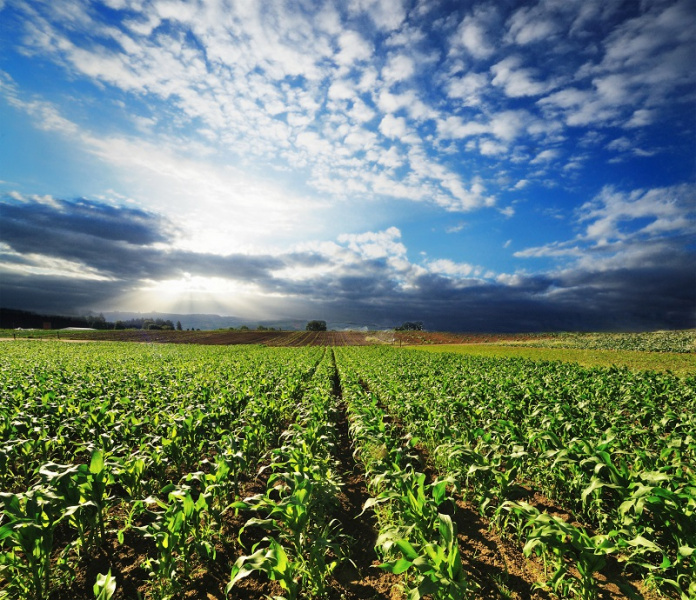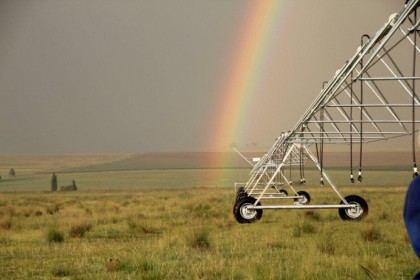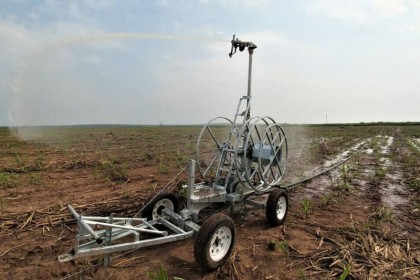
Crop Protection
Crop protection involves the prevention of, and protection against, pests, diseases, and weeds that negatively impact produce. In order to meet increasing consumer demand, farmers cannot afford the (oftentimes) devastating effects of crop infestations. Crop protection products aim to promote a sustainable approach to controlling and preventing crop issues, whilst remaining as non-toxic for humans as possible.
Crop Protection Products
Due to increasing scientific research, and everchanging technology, farmers have an array of effective options when it comes to protecting their farms and crops. Chemical and biological crop protection products, nutrient management, and soil health practices have all been made possible by extensive research, and enhanced by data science. Scientists and agricultural researchers can assess soil life, and detect harmful organisms and pests – once found, the issues can be irradicated accordingly.
Other methods of crop protection involve genetic modification of the seeds to enable their own protection against certain harmful elements. These are armed with protection before being placed in the soil.
Soil health also plays a huge role in crop protection and yield. From seed, to soil, to water, and protective sprays, farms need to be carefully prepared and upkept, in order to perform optimally and avoid infestations affecting the entire operation.
Organic Crop Protection
Recently, consumers have become increasingly aware of what they are putting into their bodies – harmful chemicals used in crop protection may have been unquestioned a decade ago, but there have been multiple documentaries exposing the harmful effects of these on our bodies and those of our children. Thus, healthier, eco-friendly solutions have become the forefront of crop protection.
Organic crop protection methods are non-invasive, and provide produce that is safe to consume for both humans and animals.
Organic Farm Protection Methods
Physical labour control – this form of protection involves mowing, cutting, soil turning and other physical activities surrounding the plants to disrupt pests’ lifecycles, as well as growth of moulds and fungi.
Biological control agents – this method incorporates natural enemies of insect pests, known as biological control agents, which are predators, parasitoids, and pathogens. For weeds, these agents include plant pathogens that eat or suffocate the unwanted plants. Farmers introduce biological control agents where they are not naturally occurring.
Chemical control – there are certain synthetic substances that are non-toxic (in moderation) which include fixed coppers (copper hydroxide, copper oxide, copper oxychloride, copper sulphate), hydrogen peroxide, lime sulphur, and potassium bicarbonate – these can be added as a method of safe crop protection (according to requirements) without violating health and safety regulations.
Crop Protection Companies: Regulation of Crop Protection Products
All aspects of the crop protection industry are regulated; production, manufacturing, distribution and usage instructions, as well as the setting of allowable residue levels in food (known as maximum residue limits or MRLs). Products are comprehensively tested and evaluated before being approved for registration and sale.
To register a product for use in a specific country, farmers must demonstrate that it meets the regulatory standards of that country, that it is safe for workers to use, and that it has no adverse effects on the environment, crops, or the food that will eventually be produced.
Benefits of Crop Protection
- Pesticides may increase crop yield and productivity by 30%. With the introduction of pesticides, farmers have been able to produce bigger crops on less land, which subsequently saves on water and other precious resources.
- Many pesticides and herbicides have been found to improve the quality of seeds, growth mediums (fertilizers and soil) and the overall produce.
- Crop protection methods save on labour costs by reducing the amount of work required by hand, as well as costly machinery.
- Crop protection protects consumers from harmful pathogens. It also removes harmful environmental effects and assists in controlling food waste.
- Without crop protection, food prices would skyrocket as a result of additional labour, upkeep, and use of resources.
Crop protection is imperative for the wellbeing of animals and humans, as well as the environment.
For crop protection companies and other agricultural resources, or to register your agricultural supply company, visit our directory.












